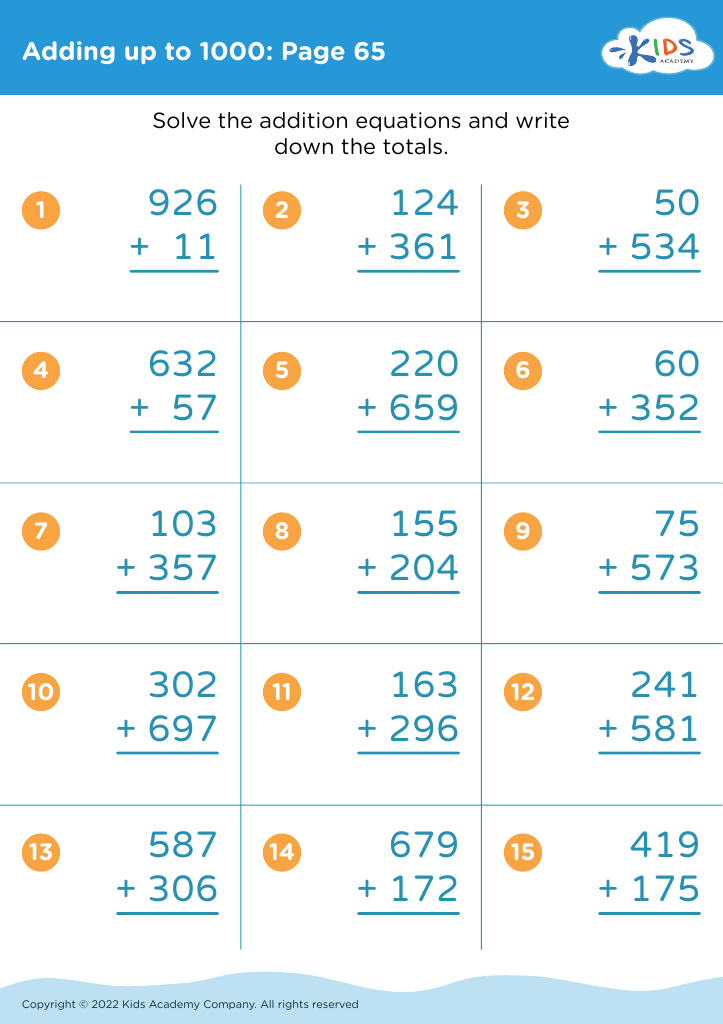Sequencing Skills Addition Worksheets
3 filtered results
-
From - To
Unlock your child’s potential with our Sequencing Skills Addition Worksheets! Designed to enhance understanding of mathematical order and improve addition skills, these engaging worksheets encourage critical thinking and problem-solving. Students will practice arranging numbers in sequence, grasping essential mathematical concepts while developing their counting and addition abilities. Perfect for early learners, our worksheets incorporate fun visuals and varied exercises to make learning enjoyable. Help your child build a strong foundation in math with these unique tools that bridge the gap between basic operations and sequential thinking. Discover a fun, effective way to boost mathematical skills today!
Sequencing skills are crucial for children's cognitive development, particularly in math and reading. For addition, sequencing skills help children understand the order and logic behind mathematical processes. When children learn to sequence numbers correctly, they build a strong foundation for problem-solving and critical thinking. This understanding facilitates not just basic addition, but also more complex operations involved in higher mathematics.
Teachers and parents should care about developing sequencing skills in addition because they are essential for academic success. Mastery of these skills enables children to tackle word problems, follow multi-step directions, and solve real-world math challenges confidently. Furthermore, strong sequencing abilities enhance comprehension in reading, as children learn to follow the logical flow of stories and instructions.
In addition to academic benefits, fostering sequencing skills promotes perseverance and attention to detail, vital traits for lifelong learning. When children grasp the importance of order and arrangement in tasks, they become better prepared for future challenges. Consequently, engaging in activities that reinforce sequencing skills not only supports immediate educational goals but also lays the groundwork for future success across all subjects, enriching children's overall learning experiences.



















